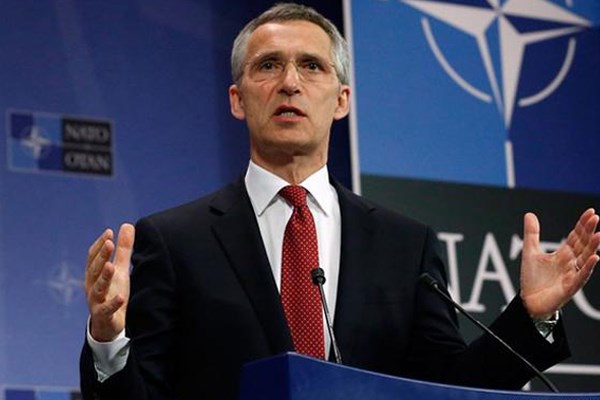Stoltenberg's warning: Europe must brace for a decade-long war in Ukraine
The stronger Europe's support for Ukraine, the sooner the war will end, believes current NATO Secretary-General Jens Stoltenberg. On the other hand, the longer the war continues, the greater the chances of a Russian victory.
Russian President Vladimir Putin is confident that time is on his side. Therefore, European countries should consider that the Russian-Ukrainian war could last for 10 years. Its duration depends on how long and how strongly Europeans will support the Ukrainians, said Stoltenberg in an interview with the BBC.
Stoltenberg addressed the war in Europe in response to a direct question from a journalist. The journalist inquired whether the "conflict in Ukraine" could indeed last 10 years, to which Stoltenberg responded succinctly with "yes." However, the NATO Secretary-General substantiated his position by referring to a "paradox." In his view, the speed of ending the war depends on the strength of Europe's support for Ukraine. Conversely, Putin is confident that if he engages in a protracted war, he will prevail.
"The paradox is that President Putin now believes he can outwait us. Therefore, the war continues," he said.
The NATO chief also reminded that a special coordination center will be established in Germany to support Ukraine. The task of this center is to ensure "predictability, accountability, and support," as well as an "unyielding commitment to support." He also touched on the topic of Donald Trump potentially returning to the White House. Stoltenberg is convinced it isn't in the USA's interest to abandon NATO. Moreover, he believes Trump could benefit European countries and Canada by prompting them to strengthen their defenses and spend more than 2% of their budgets on it.
"It is in the security interest of the USA to have a strong NATO," Stoltenberg told the BBC.
It should be noted that during more than two years of the full-scale invasion, three NATO summits were held to discuss Ukraine and the war with Russia — in Madrid in October 2022, in Vilnius in July 2023, and in Washington in July 2024. At all the meetings of alliance member countries, declarations of support for Ukraine were made. Consequently, within six months of 2024, 23 security agreements were concluded: the signatories promised to provide military assistance, train soldiers, and enhance the defense industry. Moreover, Ukrainians heard that a "bridge to NATO" would be created for them, but membership would not be granted as long as the war continues.
On July 18, Politico published an article, suggesting that NATO's promises of membership chances for Ukraine were in vain. On July 19, NATO's Supreme Allied Commander Europe, General Christopher Cavoli, stated that Russia is infuriated by the war in Ukraine and is prepared for any actions.
